Can you Use a Bicycle Helmet for Skiing? [Solved]
Yes, I know you just bought your first aero helmet and when you compare the look and feel of an aero helmet to a skiing helmet, they almost look the same. So now you’re wondering can you use a bicycle helmet for skiing?
It’s a reasonable question. Both are designed to dissipate impact to the head at high speeds. On one hand, a helmet for a bicycle is meant to dissipate impact when falling on the hard ground.
Clearly it will be stronger if ski helmets are made to ski through the soft snow then, correct?
This may be a myth, and we will tell you why. In this post you will learn why it is not a great idea to wear a bicycle helmet while skiing.
You will learn the differences of the two helmets and how they are constructed. You will also learn about how bicycle helmets are made and how they prevent brain injury.
Once upon a time, bicycle hats were the most influential piece of fashion for cyclists. Now they are worn underneath a helmet or at a post-race celebration to bring back memories of past times.
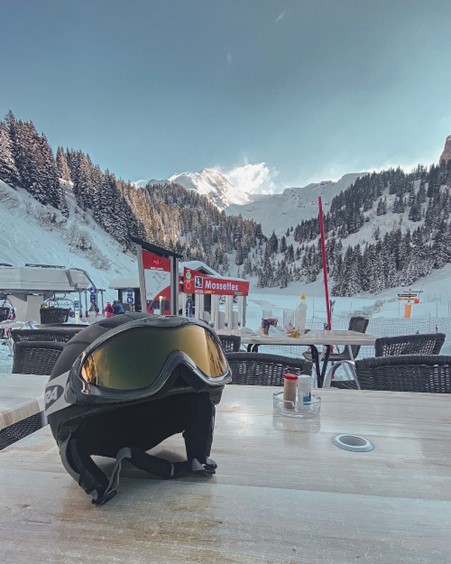

Can you Use a Bicycle Helmet for skiing?
You should not use a bicycle helmet for skiing but always while cycling. You will be shocked by how not a great time it will be to wear a bicycle helmet for skiing.
Outside of safety, there are plenty of reasons why a bicycle helmet is not the right tool for you while skiing.
Before going into detail of each reason why this is not the greatest ideas, the main reason is how secure a bike helmet is to your head versus a skiing helmet.
A skiing helmet’s chin strap typically has a velvet soft cushion cover that is made to wrap around your chin. In the event of a fall, the snow (ice) tends to attempt to move the helmet around. This is not as evident with bicycle falls.
If you use a bicycle helmet for skiing, you risk the bicycle helmet losing it’s grip on your head during a fall.
This could mean that you’ll get a nasty rub burn on your chin and face from the straps, or it would mean that the helmet does not stay fully on your head and you risk injury to your head.
We do not recommend you use a bicycle helmet for skiing, though this is just the tip of the iceberg for reasons why.
What is the difference between a ski helmet and a cycling helmet?
Ski helmets and bike helmets are different for several reasons. It is not recommended that you use them interchangeably. It may save you some money to skip purchasing a separate helmet, but it is not worth the risk to your head.
Bicycle helmets and Ski helmets are different. Bicycle helmets are made to dissipate impact from a fall off of a bike typically onto the road or ground. Usually those falls are hitting the front of the head rather than the sides or back.
There are other key differences that we will go over too:
Ventilation
Bicycle helmets are made to remove any and all heat from your head. This means if you are on a white-out day at Mammoth, then you’ll find yourself needing to go in pretty early rather than enjoying the powder.
The vents that are inside of your bike helmet will let out the air and let in the snow if it is snowing, and if (when) you take a spill from your ski or snowboard. You will get cold.
Of course, if you would like to stay warm while cycling, Cycling Balaclava’s are very helpful under your helmet.
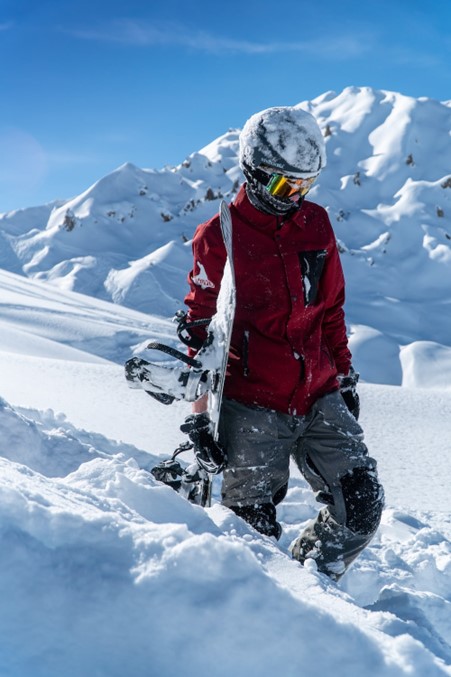

Coverage
Bicycle helmets are made typically for front impact blows to the head. These impacts are expected when a bicycle stops moving suddenly and the rider continues moving over the bicycle into an object.
This is different from a ski helmet where the coverage is all around. Tumbles where the head is knocked from side to side are as frequent as a direct blow. There is more all around coverage with the ski helmet in comparison to a bicycle helmet by nature of the sport.
Chin Protection
Bicycle helmets typically have fairly flimsy chin straps. This is again to help with allowing heat to escape from the helmet.
Anecdotally, the way that most of our team, and many cyclists wear their helmet is that they tend to not tighten the chin strap extremely tight.
It is not only uncomfortable, but it also can cause razor sores. The main reason why is that many bicycle helmets will have an adjustable skull locking mechanism at the back of the head to lock the helmet to the heat.
This leaves the chin strap to be useful simply to keep the helmet from coming off in a major fall. A day of skiing with the chin strap on tight will lead to major rash with a bicycle helmet.
A ski helmet’s chin strap is typically very soft and comfortable because it needs to be on tight throughout the day. The chin strap also has a layer of warmth that helps keep heat in should you need it.
Goggle Compatibility
Your ski helmet is made to have goggles fit comfortably around the helmet and rest on top of the helmet when the rider takes them off. A bicycle helmet typically is made for compatibility with cycling sunglasses.
This will mean that when you are skiing with a cycling helmet, your eyes may not have full protection because your bicycle helmet may cause for improper fit and your goggles may either come off of have an improper seal to the face.
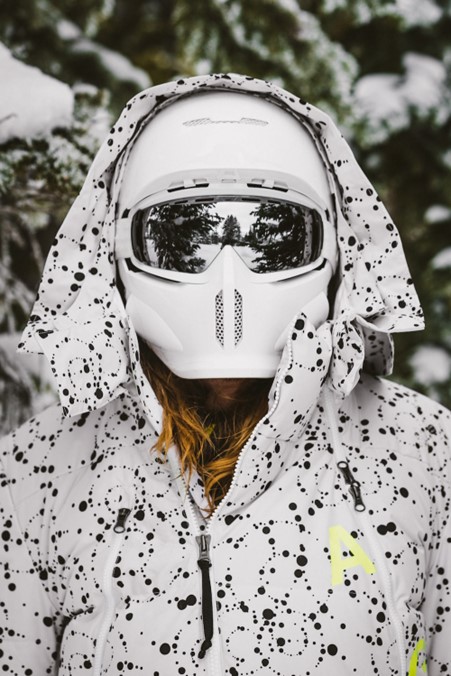

Do bicycle helmets prevent brain injury?
The purpose of a bicycle helmet is to take a direct hit to the head and dissipate the force throughout the entire surface area of the helmet. While this force is dissipated throughout the helmet, the padding inside of the helmet dulls the impact that finally reaches the head, skull and brain.
A bicycle helmet is quite possibly the best way to prevent brain injury because of this process and is now required by many major races in California and worldwide.
Conclusion: Can you use a bicycle helmet for skiing?
Should you use a bicycle helmet for skiing? No you should not. There are major design differences that lead it to not make much sense to ski with a cycling helmet.
Your head will be far colder than others, your goggles will not fit correctly, your chin will be rubbed raw and the impact protection will not be nearly as comprehensive as a proper skiing helmet.

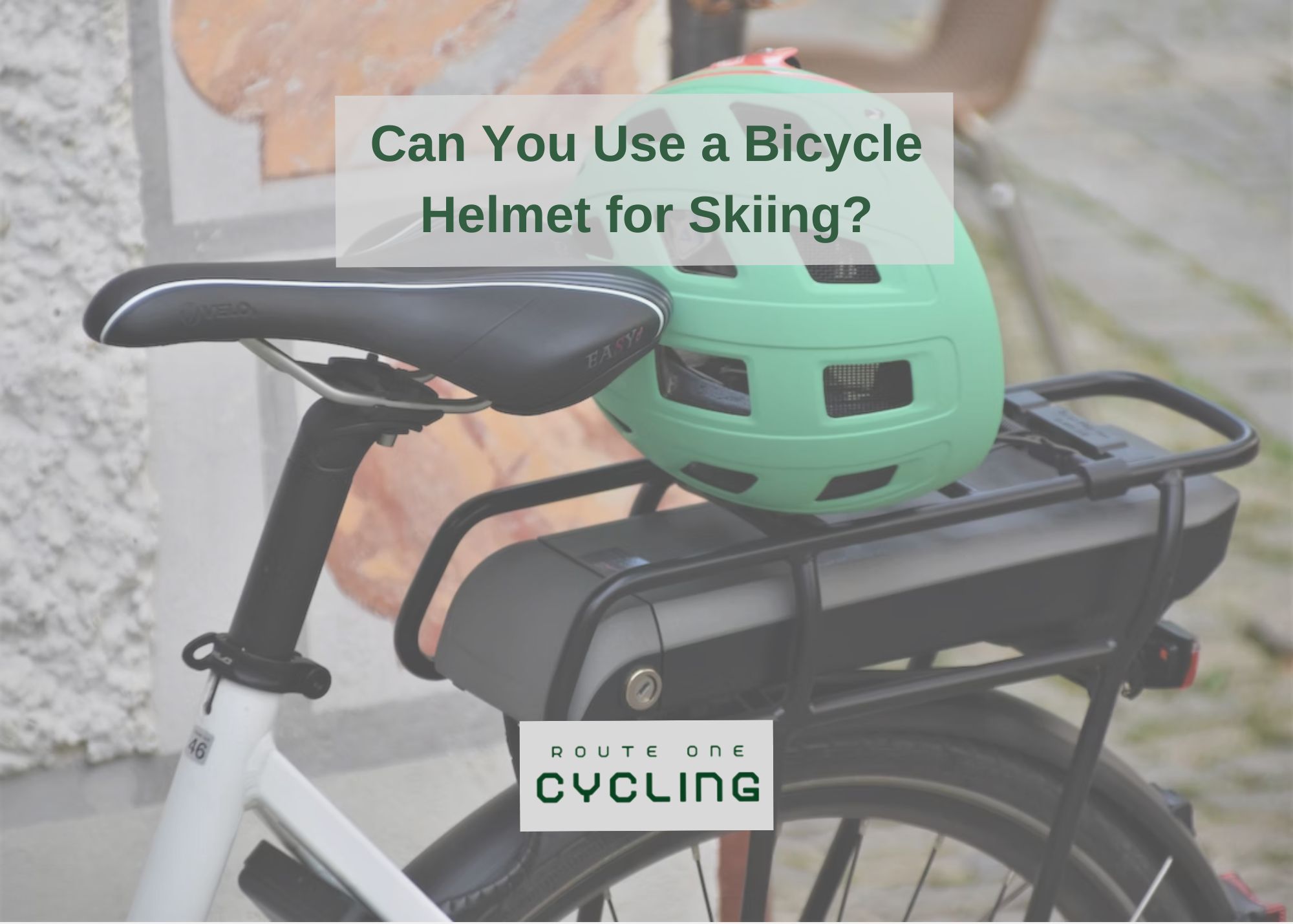


![How to Unclip Cycling Shoes [With Photos]](https://routeonecycling.com/wp-content/uploads/2023/05/How-to-Unclip-Cycling-Shoes-9.png)
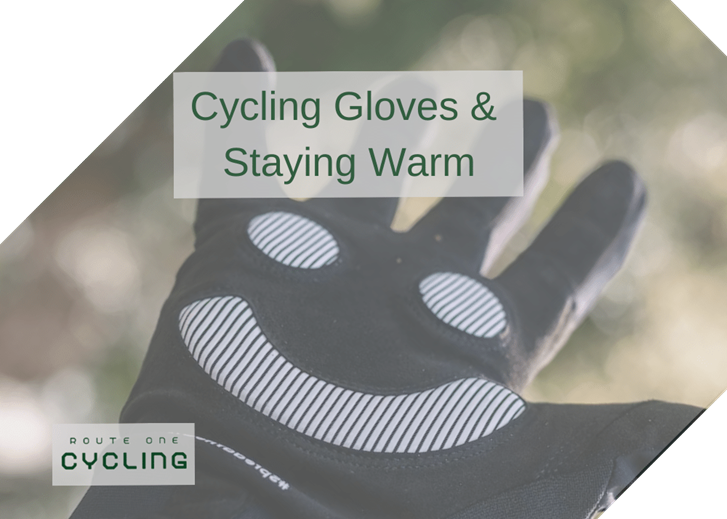
![Full-Tilt Guide to Cycling Shoe Fit [Sizing Chart for ALL Male/Female Brands]](https://routeonecycling.com/wp-content/uploads/2023/03/whatsizecyclingshoecover-768x549.jpg)
